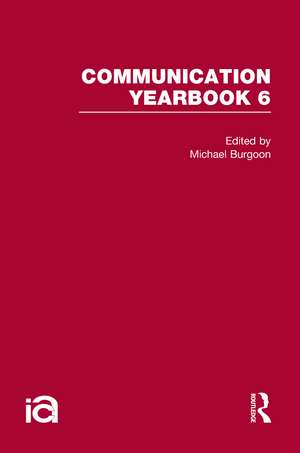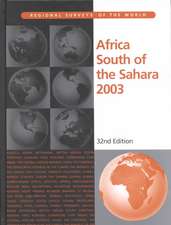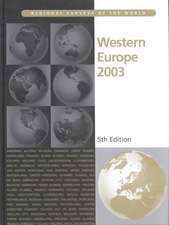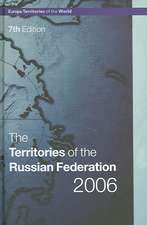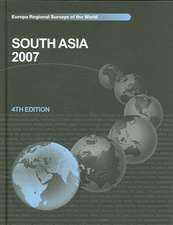Communication Yearbook 6
Editat de Michael Burgoonen Limba Engleză Hardback – 25 oct 2011
| Toate formatele și edițiile | Preț | Express |
|---|---|---|
| Paperback (1) | 284.52 lei 6-8 săpt. | |
| Taylor & Francis – feb 2022 | 284.52 lei 6-8 săpt. | |
| Hardback (1) | 930.66 lei 6-8 săpt. | |
| Taylor & Francis – 25 oct 2011 | 930.66 lei 6-8 săpt. |
Preț: 930.66 lei
Preț vechi: 1759.34 lei
-47% Nou
Puncte Express: 1396
Preț estimativ în valută:
178.08€ • 186.31$ • 147.93£
178.08€ • 186.31$ • 147.93£
Carte tipărită la comandă
Livrare economică 03-17 aprilie
Preluare comenzi: 021 569.72.76
Specificații
ISBN-13: 9780415876810
ISBN-10: 0415876818
Pagini: 976
Dimensiuni: 152 x 229 mm
Greutate: 1.97 kg
Ediția:1
Editura: Taylor & Francis
Colecția Routledge
Locul publicării:Oxford, United Kingdom
ISBN-10: 0415876818
Pagini: 976
Dimensiuni: 152 x 229 mm
Greutate: 1.97 kg
Ediția:1
Editura: Taylor & Francis
Colecția Routledge
Locul publicării:Oxford, United Kingdom
Cuprins
Part 1: Communication Reviews and Commentaries 1. The Mass Media and Critical Theory: An American View James W. Carey 2. Language and Speech Communication Donald G. Ellis 3. Nonverbal Cues as Linguistic Context: An Information-Processing View Joseph P. Folger and W. Gill Woodall 4. Communication Between Handicapped and Nonhandicapped Persons: Toward a Deductive Theory Gordon L. Dahnke 5. Oral Communication Apprehension: A Reconceptualization James C. McCroskey 6. Does Communication Theory Need Intersubjectivity? Toward an Immanent Philosophy of Interpersonal Relations Lawrence Grossberg 7. Privacy and Communication Judee K. Burgoon 8. Direct Satellite Broadcasting: Selected Social Implications Rolf T. Wigand 9. Public Communication and Televised Presidential Debates Dennis K. Davis and Sidney Kraus 10. Social Judgment Theory Donald Granberg 11. Cognitive Schemata and Persuasive Communication: Toward a Contingency Rules Theory Mary John Smith Part 2: Information Systems 12. Attitude Change and Attitudinal Trajectories: A Dynamic Multidimensional Theory Stan A. Kaplowitz and Edward L. Fink 13. An Unequal Speaking Linear Discrepancy Model: Implications for Polarity Shift Franklin J. Boster, Jan E. Fryrear, Paul A. Mongeau and John E. Hunter 14. Measuring Aspects of Information Seeking: A Text of a Quantitative/Qualitative Methodology Brenda Dervin, Thomas L. Jacobson and Michael S. Nilan Part 3: Interpersonal Communication 15. Accuracy in Detecting Deception: Intimate and Friendship Relationships Mark E. Comadena 16. The Affective Perspective-Taking Process: A Test of Turiel’s Role-Taking Model Brant R. Burleson 17. Marital Interaction: Perceptions and Behavioural Implications of Control Donavan Emery 18. Reciprocity of Self-Disclosure: A Sequential Analysis Kathryn Dindia Part 4: Mass Communication 19. International Mass Communication Research: A Critical Review of Theory and Methods K. Kyoon Hur 20. Television Rules of Prepartum New Families Thomas R. Lindlof and Gary A. Copeland 21. Contextual Age and Television Use: Reexamining a Life-Position Indicator Rebecca B. Rubin and Alan M. Rubin 22. Children’s Realities in Television Viewing: Exploring Situational Information Seeking Rita Atwood, Richard Allen, Ralph Bardgett, Susanne Proudlove and Ronald Rich Part 5: Organizational Communication 23. Communicative Strategies in Organizational Conflicts: Reliability and Validity of a Measurement Scale Linda L. Putnam and Charmaine E. Wilson 24. The Compliance Interview: Negotiating Across Organizational Boundaries James A. Gilchrist 25. Office Technology: A Report on Attitudes and Channel Selection from Field Studies in Germany Arnold Picot, Heide Klingenberg and Hans-Peter Kränzle Part 6: Intercultural Communication 26. The Television Environment in Black and White Richard L. Allen and Benjamin F. Taylor 27. Attribution Theory: Implications for Intercultural Communication Peter Ehrenhaus Part 8: Political Communication 28. News Media use in Adolescence: Implications for Political Cognitions Steven H. Chaffee and Albert R. Tims 29. Public Opinion, Communication Processes, and Voting Decisions Carroll J. Glynn and Jack M. McLoed 30. The Successful Communication of Cognitive Information: A Study of a Precinct Committeeman David A. Bositis and Roy E. Miller Part 8: Instructional Communication 31. Teacher Communication and Student Learning: The Effects of Perceived Solidarity with Instructor and Student Anxiety Proneness Gregory S. Andriate 32. Sugar and Spice: Teachers’ Perceptions of Sex Differences in Communicative Correlates of Attraction Cynthia Stohl Part 9: Health Communication 33. Coping with Occupational Stress: Relational and Individual Strategies of Nurses in Acute Health Care Settings Terrance L. Albrecht 34. The Advertising and Alcohol Abuse Issue: A Cross-Media Comparison of Alcohol Beverage Advertising Content T. Andrew Finn and Donald E. Strickland Part 10. Human Communication Technology 35. Teleconferencing, Concern for Face, and Organizational Culture Glen Hiemstra 36. Computer-Mediated Communication: A Network-Based Content Analysis Using a CBBS Conference James A. Danowski 37. Communication Networking on Computer-Conferencing Systems: A Longitudinal Study of Group Roles and System Structure Ronald E. Rice
Descriere
The Communication Yearbook 6 publishes a survey of trends at the frontiers of communication's many sub-fields, including: interpersonal, mass, organizational and political communication, and human communication technologies.
